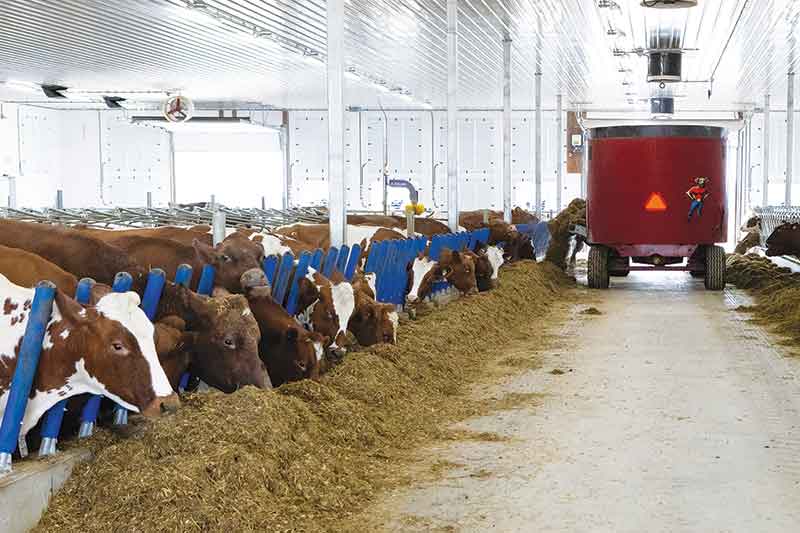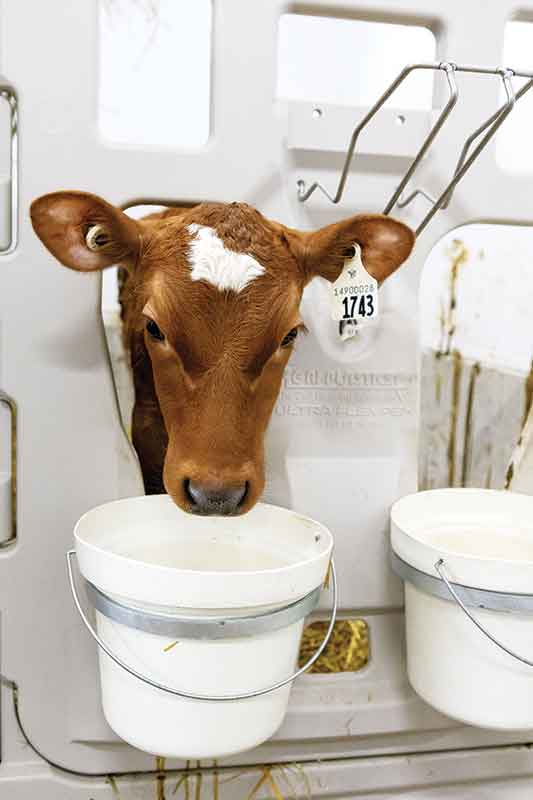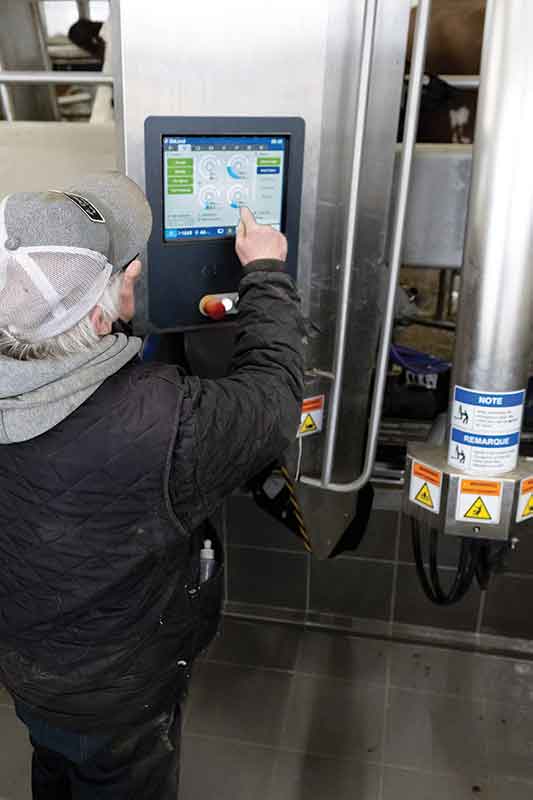A fourth-generation dairy farm is mooo-ving towards the future with a new barn equipped with the latest technology.
Located in the Lake Francis area, Park Dairies lost its barn and its entire herd of 60 milking cows in a barn fire last March.
A year later, the Park family moved their new herd into a new barn that features some automated features.
Cody Park farms alongside his dad Larry, whose grandparents Jonathan and Agnes Park started the farm in 1922 with about 10 cows. At that time, the dairy farm was located about six miles from its current location. They milked by hand and hauled the milk with horses to Lake Francis.
When the farm transitioned to the second generation of ownership, Larry’s dad Harry and mom May took over, along with his dad’s brother Walter.
In 1952, the family moved to the current farm, which is located right beside the railway track and only about 1.6 kilometres from Lake Francis.
“Outside our driveway was a water tower where the train had to stop and fill up with water, so all we had to do was carry the cans of milk out to the train,” Larry recalled.
“That’s one of the reasons why we moved to this place where we are now, which was already a dairy farm before.”
They continued milking about a dozen cows by hand. A couple years after they moved to the new location, they got electricity at their property.
In 1981, Larry took over his dad’s half of the farm and continued farming with his wife Wilma and Uncle Walter. Nine years later, he took over his uncle’s half of the farm.
Today, Larry continues to farm with his son Cody, whose wife Vanessa helps out when she can. Cody and Vanessa have three children — seven-year-old Theo, five-year-old Adaline and two-year-old Emily — so the future looks bright for the fifth generation. Over the years, their herd has grown to about 60 milking cows.
“Eventually, the plan will be for me to take over,” Cody said. “With my family, we’ll all end up farming together.”
For now, the father-son duo is still adjusting to their new barn and new animals. The new barn features a robot to milk the cows. The robot is also equipped with a tool that monitors somatic cell, which allows the Parks to monitor udder health on a day-to-day basis to help ensure milk quality. The barn is enhanced further with an automated feed pusher and a drive-through feed alley.
“In the old barn, we did all the milking ourselves. There was quite a bit of labour involved in milking cows and feeding. So we went automated and to a free-stall barn to help with the labour factor and giving a person a little more flexibility in their day-to-day life,” Cody said.
“Another piece of technology we put in the barn called a behaviour analysis. It goes on the cow’s ear and monitors the overall health of the herd by measuring individual cow activity, eating and rumination, which allows us to see a sick animal sooner and shows a cow’s heat cycle. It’s been a big learning curve to learn the technology, but it’s been good. Right now, we’re still trying to learn everything and learn our new herd.”
Cody gives a shout out to everyone who helped their family while they were dealing with the tragedy of the barn fire last year. In particular, he expressed gratitude to Chris Roulin at Lifewind Holsteins, as well as Derick Olson and family at Lake Francis Holsteins.
“They took our cows in when they were calving and had a place for them to milk until we got going again. I just want to give a huge thanks to them,” he said. “There’s not enough thanks in the world for taking care of our animals. It’s all appreciated.”
Throughout the past century, and all the changes it brought, the Park family continues to enjoy life on their dairy farm.
“Milking cows has stayed in the family. I’ve always liked working with livestock. Our cows are Ayrshire, which is a different breed than most dairy farms. Our family has had them for quite a long time,” Larry said.
“I like being my own boss and setting my own hours. But probably the best thing about dairy farming for me is working with livestock.”
Like his dad, Cody enjoys being his own boss and the variety of work. But, most of all, he enjoys interacting with the animals.
“For me, sometimes I’d rather work with cows than people,” he said with a laugh. “We treat them like our own family. Here, they’re not just a number. They each have a registered name. When the barn burned, we made a plaque with the names of all the cows that perished in the fire. You wouldn’t do that if you didn’t care for your animals.”
Looking ahead, the new barns are designed with cow comfort in mind.
“I can’t stress enough how much care we give these animals. I think the cows nowadays get treated better than a lot of people out there. They have their own nutritionist. We look after them day to day. I think sometimes people can’t understand how much care is given to these animals,” Cody said.
“With 60 cows, you still get that one-on-one connection with every animal. My kids are in the barn, playing around and helping with feeding calves. They’re going to be growing up with these animals. I grew up with these animals. Dad grew up with these animals. They are part of our own family. The quality of care we put into these animals makes a quality product.”
Tribune Photo by Jo-Anne Procter



